detail profile fritz imhoff
Peran Yang Di Mainkan Fritz Imhoff
 Young Stanzi who is visiting Vienna...
Young Stanzi who is visiting Vienna...Die Deutschmeister 1955
Young Stanzi who is visiting Vienna helps a young corporal and musician to become famous for his marching song "Die Deutschmeister".
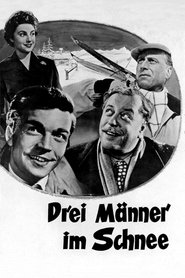 The multimillionaire Eduard Schlter takes part...
The multimillionaire Eduard Schlter takes part...Three Men in the Snow 1955
The multi-millionaire Eduard Schlüter takes part under the name Schulze in a raffle of his own Schlüter works and wins a stay at the Grand Hotel. Disguised as a poor swallower, he would like to study the reactions of the hotel staff and guests. As an assistant, he takes his reliable servant Johann with him. Once there, he makes friends and also has cause for annoyance when his daughter and the housekeeper arrive.
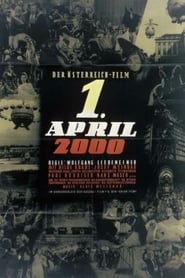 It is the year 2000 and the...
It is the year 2000 and the...April 1, 2000 1952
It is the year 2000 and the World Global Union is in charge, although other countries are allowed to elect their own government leaders, as long as they support the Union. When Austria's newly-elected president, played by Josef Meinrad, makes his inauguration speech he declares Austria independence and issues an edict ending Austria's financial support for the Global Union.
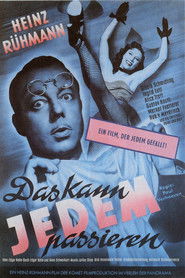 Hugo Brinkmeyer a tax consultant takes...
Hugo Brinkmeyer a tax consultant takes...That Can Happen to Anyone 1952
Hugo Brinkmeyer, a tax consultant, takes his wife Gerda out to the cabaret one evening. There he encounters a potential client, the wealthy businessman Schwidders. A series of mix-ups lead to Hugo being suspected of both incompetence at his job and being unfaithful to his wife.
 Young Count Georg Wolkersheim is sent...
Young Count Georg Wolkersheim is sent...Vienna Blood 1942
Young Count Georg Wolkersheim is sent to the Congress of Vienna to represent the interests of his country, Reuss-Schleiz-Greiz. Tensions arise between the count, his wife Melanie, and their two chamberlains, and when the four attend a court ball, Melanie leaves Georg, assumes the identity of a famous actress, and attracts the affections of Crown Prince Ludwig of Bavaria.
 Johann Strauss firmly established himself as...
Johann Strauss firmly established himself as...Immortal Waltz 1939
Johann Strauss firmly established himself as the leader of a dance orchestra in Vienna in the 1840s. His sons Johann junior and Josef have clearly inherited their father's talent. Nevertheless, father Johann is strictly opposed to both of them training as composers.
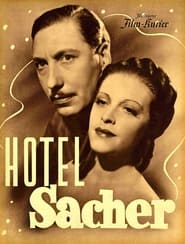 Vienna is celebrating New Years Eve 191314...
Vienna is celebrating New Years Eve 191314...Hotel Sacher 1939
Vienna is celebrating New Year’s Eve 1913/14. It is the year, which will see the outbreak of the First World War. In Hotel Sacher, the mood is excellent; and although the political atmosphere is charged, there’s an undercurrent of hate and intolerance in the air. It is with this background that Nadja, a Russian spy, meets the Austrian civil servant Stefan. He loves her, but comes under suspicion of being an agent because of this love.
 Vienna 1922 Due to a sudden financial...
Vienna 1922 Due to a sudden financial...Episode 1935
Vienna, 1922. Due to a sudden financial tragedy, a young woman begins accepting checks from an older, rich gentleman for companionship in order for her to keep attending college. Their relationship is purely platonic, but eventually she begins a romance with the tutor of the older man's sons who has a completely wrong impression as to the nature of her arrangement with his employer.
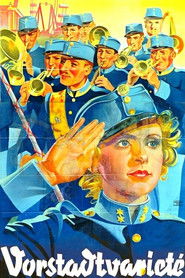 In Vienna of 1913 a young woman...
In Vienna of 1913 a young woman...Suburban Cabaret 1935
In Vienna of 1913 a young woman coming from vaudeville theatre circles stands before the wedding with a construction draftsman; this must move to the military and sends his bride on the country, so that she cannot be enticed to the stage. However, she does it and gets by an officer's love affair so in confusion that she commits suicide. - This end environment-close and differentiates of produced melodrama was rejected by press and audience vehemently; the new second film end with the rescue of the desperate was supplied later, so that in this version only a bittersweet common melodrama with excellent actors and good photograph was left. In the rental company copy is the second version of the end jointly contain.
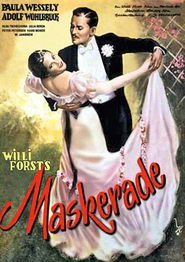 After a masked carnival ball Gerda...
After a masked carnival ball Gerda...Masquerade in Vienna 1934
After a masked carnival ball, Gerda Harrandt, wife of the surgeon Carl Ludwig Harrandt, allows the fashionable artist Ferdinand von Heidenick to paint a portrait of her wearing only a mask and a muff. This muff however belongs to Anita Keller, in secret the painter's lover but also the fiancée of the court orchestra director Paul Harrandt. The picture is then published in the newspaper. When Paul sees it and asks von Heidenick some questions about the identity of the model, the artist is forced to improvise a story and on the spur of the moment invents a woman called Leopoldine Dur as the alleged model. Leopoldine Dur however turns out to be a real woman whose acquaintance Heidenick makes shortly afterwards.


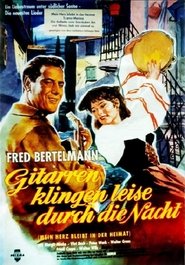
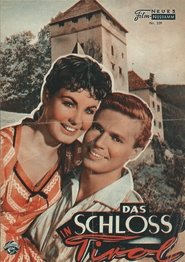 A comedy directed by Gza von...
A comedy directed by Gza von...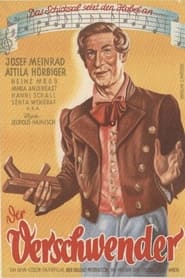
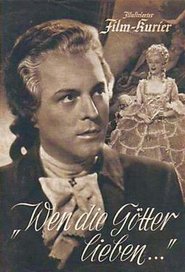 Biographical film about the life of...
Biographical film about the life of...